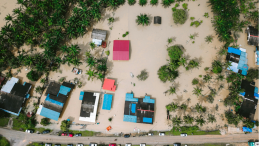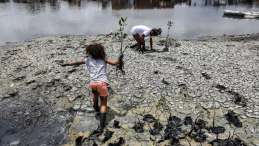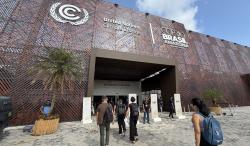Developing countries located in disaster-prone regions like the Caribbean are being hit hard by the effects of climate change. As the frequency and intensity of extreme weather events increases, vulnerable populations are made even more vulnerable by the increased risk that changing weather conditions place on their lives and livelihood.
The Climate Risk Adaptation and Insurance in the Caribbean (CRAIC) project addresses climate change adaptation and vulnerability by promoting climate risk insurance as an instrument to manage and transfer risk. The project, which currently operates in three countries (Jamaica, Saint Lucia, and Grenada), has successfully designed and launched two index-based insurance products:
- The Livelihood Protection Policy (LPP) supports low-income people who are particularly vulnerable to extreme weather events. It covers damage from heavy rains and strong winds to offset the worst storm-related damage. LPP payouts are quickly distributed to policy holders after an event hits to ensure that those affected can immediately begin to rebuild their lives. A training and education module for local stakeholders and affected communities aims to improve understanding of this insurance tool and boost general insurance and financial literacy.
- The Loan Portfolio Cover (LPC) helps financial institutions better manage their loan portfolio risk in the face of damaging weather events. Transferring a financial institution’s weather-related loan risks means that their financial position remains stable after an extreme event. The LPC seeks to help overcome the reluctance to invest, improve access to lending, and contribute to cost reductions for financial services.
This project acquired funding for a second phase of activities to reach more people in the region and beyond (i.e., into Belize and Trinidad & Tobago).
Funded by the Federal Ministry for the Environment, Nature Conservation, Building and Nuclear Safety (BMUB) under its International Climate Initiative, the project is implemented by the Munich Climate Insurance Initiative (MCII, hosted at UNU-EHS) and conducted in cooperation with its partners the Caribbean Catastrophe Risk Insurance Facility, DHI, and the ILO Impact Insurance Facility. Reinsurance capacity is provided by Munich Re.






